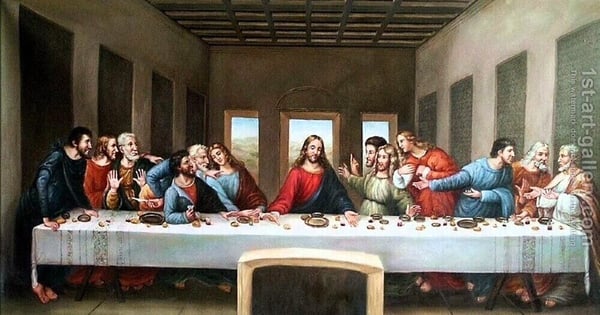
A Jewish woman from Hungary was imprisoned at Auschwitz, the Nazi Concentration Camp during WWII. She knew that she arrived at the camp on the second day of the Festival of Weeks (we would call it Pentecost), so she counted the days until the next Sabbath day. On that Friday evening, the beginning of Shabbat, she saved the margarine from her meal instead of eating it, and with some threads pulled from the bottom of her dress, she made two tiny candles. She would light those candles like generations of Jewish families before her. She encouraged all the other women in her barracks to do the same and before long, every Friday night that room was glowing with an act of resistance and defiance.
They could take away her freedom, her possessions; they even could take her life.
But they couldn’t take away the meaning of her Friday ritual of lighting candles before sunset to usher in the Jewish Sabbath to welcome God into her soul, no matter where she stood, even if it was in a concentration camp.
After the war, she claimed that she only survived because of her Shabbat candles. This ritual connected her to God, to her community, gave her life meaning, and reinforced her identity.
Rituals Give Life Meaning.
“Rituals are the habits of meaning that give us an anchor and add depth to our lives. As a culture, we’re losing ritual and we are losing rhythm. We’re losing rootedness and depth and anchoredness. Because time and rhythm and ritual, these things are no longer external forces that we must submit to. They’re things we can bend, hack, destroy. Or so we think.”
- Jefferson Bethke
Rituals that are just form without substance or meaning become aspects of a legalistic, man-made show. This is why some people have dismissed tradition and ritual, calling it “meaningless.” But when we work to explain and infuse the rhythms of our walk with Jesus, these habits can take on great weight, significance and meaning. Strong consistency in celebrating our faith helps connect us to God, to our community, and gives our lives meaning. These practices will reinforce our true identity and build a sense of belonging.
In Man’s Search for Meaning, Viktor Frankl’s famous book that chronicles his time in a Nazi concentration camp, he said that the people who were most likely to survive the brutality of the concentration camp were those who held on to a purpose. Their life had meaning.
What rituals do we have that need to be infused with meaning?
Last Sunday, I summarized the Jewish Feasts and Festivals commanded by God in Leviticus 23. Yahweh commands His people to observe Sabbath every week, as well as seven special holidays or festivals over a specific seven-month timeframe every year. These special occasions are:
- Passover – celebrating God’s provision of a lamb (Jesus) so we escape death
- The Feast of Unleavened Bread – pointing to a sinless savior, Jesus
- Festival of First Fruits – it occurred the same day Jesus rose from the dead
- Feast of Weeks – 49 days after Passover, ending with Pentecost and the gift of the Holy Spirit
- Feast of Trumpets – the Jewish new year, beginning of the Ten Days of Awe, foreshadows Jesus’ return to earth with a trumpet blast
- The Day of Atonement – ten days after the Feast of Trumpets starts, celebrates the forgiveness of sins because of the shedding of blood
- Feast of Tabernacles – looks forward to Jesus’ return, where he will “tabernacle” with His people
The Church is part of God’s Chosen People.
We believe as followers of a Jewish rabbi named Jesus, that we have been grafted into the people of God (Romans 11). As a church, we don’t believe what some call “replacement theology”. We do not believe that God has abandoned His chosen people and replaced them with the church. A consistent reading of the Bible clearly shows that God still has plans for the Jewish people in these last days.
Should Christians adopt these seven rituals?
So then, what are we to do with the Jewish feasts and appointed times of celebration? Should Christians adopt these rituals to deepen our faith, identity and meaning?
Certainly we have freedom to embrace them and infuse them with the presence of Jesus, for whom each occasion is foreshadowing and foretelling. The Apostle Paul says,
16 Therefore do not let anyone judge you by what you eat or drink, or with regard to a religious festival, a New Moon celebration or a Sabbath day. 17 These are a shadow of the things that were to come; the reality, however, is found in Christ. (Colossians 2:16–17 NIV)
Paul also says,
5 One man considers one day more sacred than another; another man considers every day alike. Each one should be fully convinced in his own mind. 6 He who regards one day as special, does so to the Lord... (Romans 14:5–6 NIV)
Where would you start in trying to celebrate these special days and step into new, meaningful rituals?
This week we have the first feast of the seven Jewish feasts and festivals, Passover. It is always linked to when we celebrate Easter. Passover is rich with symbolism that points to Jesus. If you want to read a short article about some of the aspects of the Passover meal and their ties to Jesus the Messiah, click here.
Next year, I’d like to celebrate a Christian Passover Seder meal. But for now, if you want to interact with this rich practice more, Jews for Jesus is doing a special one-hour experience where you can watch a zoom video with their executive director who will walk through the connections between the Jewish feast of Passover and the Last Supper of Jesus. They have various times to register to participate Tuesday-Friday of this Holy Week. To register, follow the link here:
We invite you to join us for our Good Friday Service in the Dome this week, Friday, April 15th. We'll have two services, the first at Noon and one at 6:30 p.m. so that you can choose which works best for you.
We also hope you will celebrate the resurrection with us on Easter Sunday, April 17th. Our Worship service begins at 10:00 a.m. in the Dome. It will also be live-streamed on Facebook and YouTube.
If you missed last week's message, "Unforced Rhythms of Grace #16 - Rhythms, Ritual and Holidays", click here.



